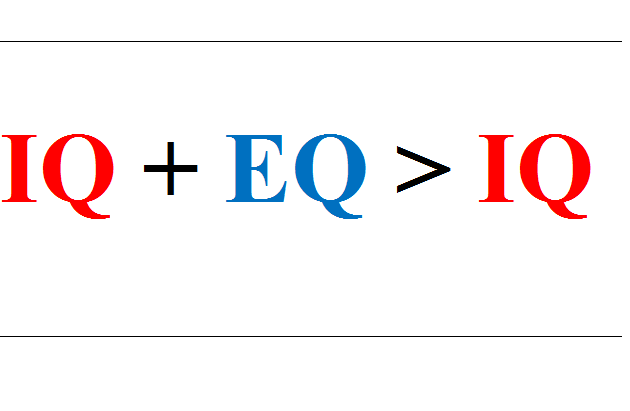Emotional Intelligence (EQ)
Following on from our last posting online which was headlined, P=p-i. We continue with the maths driven formula again on this posting, where we discuss IQ+EQ>IQ.
Usually, your IQ will get you in the door, get you the job but by understanding and being able to develop your own EQ it will give you the opportunity to maximise your potential and develop your career over the long term.
In 1995 Daniel Goleman wrote a groundbreaking book titled Emotional Intelligence-Why it can matter more than IQ. Goleman defined EQ as, “the capacity for recognizing our own feelings and those of others, for motivating ourselves, and for managing emotions well in ourselves and our relationships.”
In the intervening period much has been written about EQ and over the years it has embedded itself into peoples’ minds. When managing high-performance teams EQ is based on managing your own emotions, being aware of others emotions, thereby enabling you to be a more effective listener and communicator, and ultimately make better-informed decisions.
Your IQ may have been the primary reason why you excelled in college but when you enter the workplace your EQ may be more important in determining your success.
Historically it was believed that if you had a high IQ, achieved good grades, went to college, and possessed decent technical job skills, you were well on your way to a successful career and financial success. However, we all know people who fit this profile yet, unfortunately, they failed to deliver based on the potential and natural abilities they possessed. Several research studies over the years confirm this.
Firstly let us consider two different leaders. John has a very high IQ, he is considered to be very bright, very analytical and great at troubleshooting and problem-solving in time pressure scenarios. However, he is impatient and can blow up when other colleagues can’t understand him.
On the other hand, Tom is more patient, works well with people, is able to control his emotions, understands others perspectives and listens to their views and gives and receives feedback.
Who in the long term is going to be the more effective leader?
Who will get more buy-in from colleagues?
Who will be the better motivator?
Being a successful leader is not only about having the intelligence and technical abilities but also about developing your EQ. While your IQ is fixed, your EQ can be developed and enhanced right throughout your career and can play a very important role in your career advancement.
EQ comprises four key areas
Self-Awareness: the ability to recognise one’s own emotive state and being aware of their impact.
Self-Management: the ability to manage and keep your own disruptive emotions in check.
Social Awareness: the ability to be empathetic and understand other perspectives
Relationship Management: the ability to inspire and motivate to build on individual strengths.
So if you are leading a team or part of a team then you need to consider:
Are you aware of other peoples’ emotions?
In stressful situations do you stay calm and collected?
Are you a good listener and communicator?
Do you consider others perspectives and look for feedback?
Take a look at our website at www.summitbusinesscoaching.ie and find out more about our course modules and integrated coaching and training approach.

